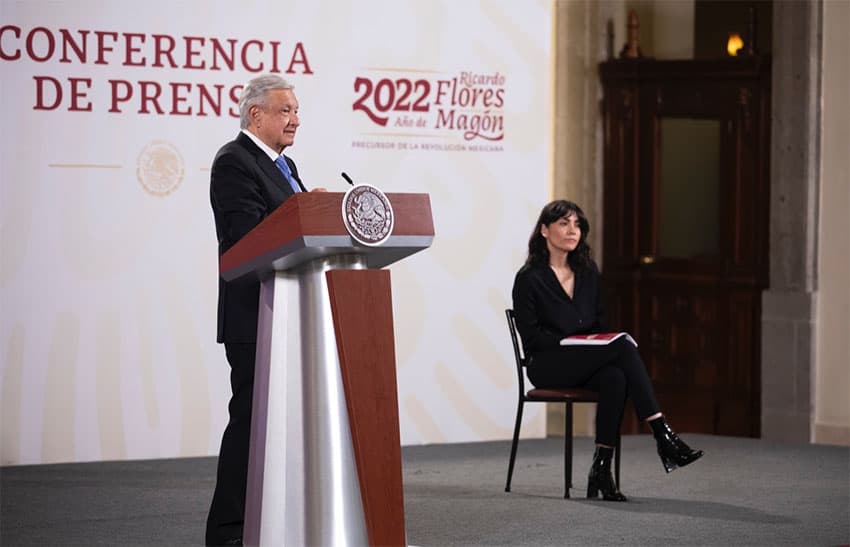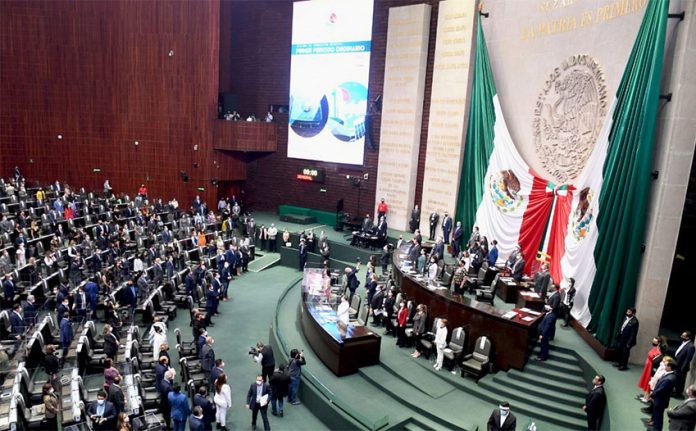A proposal by President López Obrador to reduce the size of Congress by getting rid of election by proportional representation is intended to give the ruling Morena party more power rather than save money, according to some experts.
Speaking at his regular news conference on Wednesday, López Obrador said his electoral reform bill would propose doing away with plurinominal deputies and senators.
In the Chamber of Deputies, 200 of the 500 seats are occupied by deputies elected in that manner, while there are 32 plurinominal senators in the 128-seat upper house.
Plurinominal deputy seats – the result of a 1977 political reform – are assigned proportionally to parties that attract support from at least 2% of voters. The system allows small parties with no chance of winning head-to-head contests to have a voice in Congress.
López Obrador on Wednesday complained about the cost of funding electoral authorities and staging elections and asserted that his proposed reform – which he intends to send to Congress next month – could halve that cost, generating savings of 10 billion pesos (US $501.3 million).

He then questioned why the country had so many deputies and senators, prompting a reporter to inquire whether he would propose the elimination of plurinominal lawmakers.
“Yes, of course, I’m proposing that, the elimination,” López Obrador responded.
Three experts who spoke with the newspaper Reforma claimed that the president’s proposal would not generate savings but would result in more power for Morena – which López Obrador founded – and its allies in Congress, namely the Labor Party and the Ecological Green Party.
Lawmakers with Morena and its allies currently account for 55% of all federal deputies and senators, but without plurinominal legislators that figure would increase to 75%, Reforma said.
Thus Morena wouldn’t have to rely on opposition support to pass constitutional reforms which require the backing of two-thirds of lawmakers to become law.
Without lawmakers elected by proportional representation, the makeup of the Congress would be similar to its composition in the decades when the Institutional Revolutionary Party (PRI) dominated Mexican politics, Reforma said.
The PRI ruled Mexico for 71 uninterrupted years between 1929 and 2000. Peruvian novelist Mario Vargas Llosa famously said in 1990 that Mexico under the PRI was “the perfect dictatorship.”
Metropolitan Autonomous University (UAM) political scientist Luis Eduardo Medina told Reforma that the elimination of plurinominal seats would be “a clear backward step.”
He claimed López Obrador’s proposal would take the country back 45 years.
The plurinominal seats were introduced so that Congress wouldn’t be dominated by the ruling party, Medina said, adding that the president “wants to return to a hegemonic, authoritarian regime” like “the old PRI.”
The academic described López Obrador’s proposal – which would also allow citizens to directly elect electoral councilors and electoral judges – as absurd.
Jorge Javier Romero, another UAM politics academic, also said that doing away with plurinominal lawmakers would be a regression. “His proposal is [to have] a centralized, state party regime,” he said.
Pamela San Martín, a former electoral councilor, noted that plurinominal lawmakers represent citizens who vote for “another option” beyond the largest party, which in terms of current representation in Congress is easily Morena.
López Obrador said Tuesday he would send his electoral reform to Congress after the April 10 revocation of mandate referendum, at which voters will get the opportunity to have their say about whether the president should complete his six-year term.
With reports from Reforma
